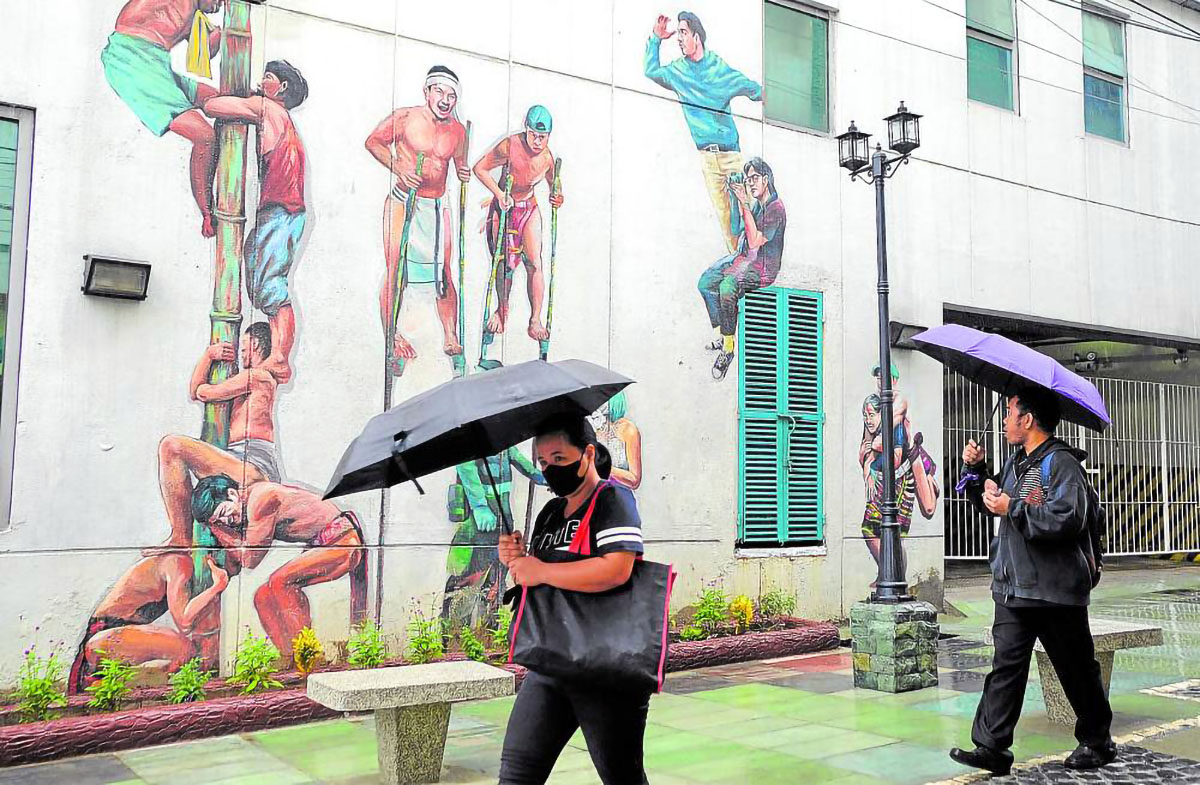
Carantes Street is Baguio’s First Living Street 8 taken on June 5, 2023 —Neil Clark Ongchangco
BAGUIO CITY — Residents here on Tuesday walked for the first time through the city’s “living street,” which Baguio Mayor Benjamin Magalong opened after more than a year of construction.
Carantes Street is piloting a Dutch urban renewal concept that converts the ordinary road into a shared public space.
Once a neglected 8-meter-wide back alley in downtown Baguio near the foot of Session Road, Carantes Street was transformed into a cobbled road where people can rest on park benches or read a book beneath street lamps as small vehicles and bikes pass through.
Small flower gardens were set up along Carantes to draw the eye to murals of city folk going about their daily lives. These were painted by a group of Baguio artists on building walls lining the road.
Other inner city roads concealed by commercial buildings would soon be reclaimed and converted into “living streets,” using Carantes’ design as a template, as part of Baguio’s measures for reducing its carbon footprint, said Richard Lardizabal of the City Engineer’s Office, one of the officials spearheading the project.
Carantes, he said, is also a prototype for a modern Session Road that is envisioned to have wider pedestrian lanes, street side benches, and garden landscapes. The “living street” project brings the city closer to the aspirations of “pedestrianization.”
Mural artists
Carantes Street first drew attention when mural artists Venazir Martinez and Taipan Lucero gathered younger illustrators and painters to render a slice of Baguio life along the narrow road in 2021, said Kunaya Lopez, a University of the Philippines Baguio fine arts graduate.
Lopez was part of the group that painted huddled Cordillera men and women, people selling newspapers, and boys who offer to shine shoes.
They also painted a group of children clambering up a bamboo pole, a horseback rider, and a family peering down from a veranda.
The street became a tourist attraction before it was given a facelift because of the mural.
Lopez said she and fellow artists Ane Janelle Muena, Zelle Fermin, and Glynesha Villanueva were commissioned last month to retouch the mural on the walls of the Development Bank of the Philippines building and of the homegrown department store, Tiong San.
‘Net zero lane’
Lopez and artist Ronald Allan de Leon also gathered artists who painted another mural on Jacinto Street beside Malcolm Square. Jacinto is the city’s second “living street.”
This time, Jacinto would be reconstructed using materials made of recycled waste to promote Baguio’s environmental direction, said Mayor Magalong.
“We will call it the net zero lane,” he said.
READ: Baguio still Cordillera tourism anchor
Old Baguio residents said people used to shun these backstreets where violence was rampant because “that was where drinking sprees used to occur.”
Some of the side streets are also frequented by Cordillera workers. Jacinto, for example, was the location of Baguio’s original Sagada Lunch, a popular restaurant serving Cordillera dishes.